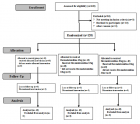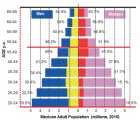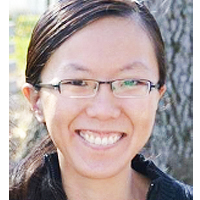Abstract
Research Article
Epidemiological profile of the homeless population assisted by voluntary initiative and the social impact on access to healthcare: an investigative study in Curitiba, Brazil
Francelise Bridi Cavassin*, Rafael Senff Gomes, Luiza Cardoso de Lima Passoni and Ricardo Sirigatti
Published: 07 July, 2021 | Volume 2 - Issue 1 | Pages: 015-020
Objective: The study aimed to describe the epidemiological profile of the homeless population and report the social impact on healthcare services provided by a voluntary initiative during one-year of follow-up.
Method: This is an investigational study, carried out in an important capital-city of southern Brazil, which included 509 individuals in 2019. Findings were divided into three segments: sociodemographic, substance use/abuse and impact on healthcare.
Results: The sociodemographic profile found was predominantly male, white, single, heterosexual, educated in elementary or high school, in regular use of legal and/or illegal substances, and living as homeless for less than a year. The impact of assistance provided on the perception of individuals who returned in subsequent actions was evident.
Conclusion: The significant increase in the number of homeless people in large urban centers can benefit from the support of non-profit organizations to address the deficiencies faced in accessing basic health services. Based on this, we seek to advance in the development of new policies that improve local healthcare for the vulnerable population, to be more assertive to their needs.
Read Full Article HTML DOI: 10.29328/journal.jcmhs.1001010 Cite this Article Read Full Article PDF
References
- Cunha JVQ, Rodrigues M. Pesquisa Nacional Sobre a População e Situação de Rua. 2009; http://www.mds.gov.br/webarquivos/publicacao/assistencia_social/Livros/Rua_aprendendo_a_contar.pdf
- Marcondes NAV, de O. Chamon EMQ, de Castro MACD. Impasse entre o Processo de Urbanização no Brasil e a População em Situação de Rua: uma Análise Crítica. Rev Ensino Educ. e Ciências Humanas. 2017; 18: 1.
- Natalino MAC, Estimativa Da População Em Situação De Rua No Brasil. Marco Antonio Carvalho Natalino, Texto Para Discussão IPEA. 2016; 36. http://repositorio.ipea.gov.br/bitstream/11058/7289/1/td_2246.pdf
- Natalino MAC. Estimativa da população em situação de rua no Brasil (setembro de 2012 a março de 2020), IPEA. Disoc. 2020; 73.
- Brasil, Decreto no 7.053, de 23 de Dezembro de 2009, Brasília. 2009. http://www.planalto.gov.br/ccivil_03/_Ato2007-2010/2009/Decreto/D7053.htm#:~:text=Para fins deste Decreto%2C considera,áreas degradadas como espaço de%0Ahttp://www.planalto.gov.br/ccivil_03/_ato2007-2010/2009/decreto/d7053.htm
- Brasil, Lei N. 13.714 De 24 De Agosto De 2018, Brasília, DF. 2018. http://www.planalto.gov.br/ccivil_03/_Ato2015-2018/2018/Lei/L13714.htm%0Ahttp://pesquisa.in.gov.br/imprensa/jsp/visualiza/index.jsp?data=27/08/2018&jornal=515&pagina=3&totalArquivos=187
- Aguiar MM, Iriart JAB. Meanings and practices associated with health and illness among the homeless in Salvador, Bahia State, Brazil. Cad Saude Publica. 2012; 28: 115–124. PubMed: https://pubmed.ncbi.nlm.nih.gov/22267071/
- De Estado S, Justiça DA, Direitos TE, Gandour Thomé E. Guia De Apoio: Informações E Serviços De Atenção Para A População Em Situação De Rua Do Paraná. Curitiba-PR. 2018.
- Yanacopulos H. NGOs (Nongovernmental Organizations), in: Int. Encycl. Public Heal., Elsevier Inc. 2008: 536–542.
- Fundação de Ação Social. Documento 74-002-462/2019. 2019.
- Hungaro AA, Gavioli A, Christóphoro R, Marangoni SR, Altrão RF, et al. Homeless population: characterization and contextualization by census research. Rev Bras Enferm. 2020; 73: e20190236. PubMed: https://pubmed.ncbi.nlm.nih.gov/32609214/
- de A Patrício ACF, da Silva RAR, de Araújo RF, da Silva RF, de S GT. et al. Common mental disorders and resilience in homeless persons. Rev Bras Enferm. 2019; 72: 1526–1533. PubMed: https://pubmed.ncbi.nlm.nih.gov/31644740/
- Peiter P, Belmonte P, Teixeira M, Cobra G, Lacerda A. Homeless crack cocaine users: Territories and territorialities in the constitution of social support networks for health. Soc Sci Med. 2019; 227: 111–118. PubMed: https://pubmed.ncbi.nlm.nih.gov/30297160/
- Pinheiro RS, dos S Carvalho PMR, de Matos MA, Caetano KAA, de Paula AC, et al. Human immunodeficiency virus infection and syphilis among homeless people in a large city of Central-Western Brazil: prevalence, risk factors, human immunodeficiency virus-1 genetic diversity, and drug resistance mutations. Braz J Infect Dis. 2021; 25: 101036. PubMed: https://pubmed.ncbi.nlm.nih.gov/33248020/
- dos S TH. Calisto SMM, de Carvalho ACM, Magalhães HJC, Monteiro Neto V, et al. Prevalência das hepatites B e C em moradores de rua em São Luís-MA, Rev. Investig. Biomédica. 2019; 10: 219.
- Carvalho PMRDS, de Matos MA, Martins RMB, Pinheiro RS, Caetano KAA, et al. Prevalence, risk factors and hepatitis B immunization: helping fill the gap on hepatitis B epidemiology among homeless people, Goiânia, Central Brazil. Cad Saude Publica. 2017; 33: e00109216. PubMed: https://pubmed.ncbi.nlm.nih.gov/28792993/
- Halpern SC, Scherer JN, Roglio V, Faller S, Sordi A, et al. Vulnerabilidades clínicas e sociais em usuários de crack de acordo com a situação de moradia: Um estudo multicêntrico em seis capitais Brasileiras. Cad Saude Publica. 2017; 33.
- Schervinski AC, Negrão Merry C, Evangelista IC, Cardoso Pachedo V. Atenção à saúde da população em situação de rua. Extensio Rev. Eletrônica Extensão. 2017; 14: 55.
- Souza Antunes R, Ferreira De Souza AP, De Fátima E, Xavier P, Borges PR. Parasitoses intestinais: prevalência e aspectos epidemiológicos em moradores de rua Intestinal parasites: prevalence and epidemiological aspects in homeless people. RBAC. 2019; 51: 6.
- da S Farias DC, Rodrigues ILA, Marinho IC, Nogueira LMV. Homens vivendo em situação de rua e a atenção primária em saúde. Saúde (Santa Maria). 2017; 43: 1–8.
- Valle FAAL, Farah BF. A saúde de quem está em situação de rua: (in)visibilidades no acesso ao Sistema Único de Saúde. Physis Rev. Saúde Coletiva. 2020; 30: 2020.
- Barros CVDL, Galdino Júnior H, Rezza G, Guimarães RA, Ferreira PM, et al. Bio-behavioral survey of syphilis in homeless men in central Brazil: A cross-sectional study. Cad Saude Publica. 2018; 34.
- Brunini SM, Barros CVDL, Guimarães RA, Galdino Júnior H, Rezza G, et al. HIV infection, high-risk behaviors and substance use in homeless men sheltered in therapeutic communities in Central Brazil. Int J STD AIDS. 2018; 29: 1084–1088. PubMed: https://pubmed.ncbi.nlm.nih.gov/29862902/
- Sicari AA, Zanella AV. Pessoas em Situação de Rua no Brasil: Revisão Sistemática, Psicol. Ciência e Profissão. 2018; 38: 662–679.
- Ferreira PM, Guimarães RA, Souza CM, Guimarães LCDC, Barros CVDL, et al. Exposure to hepatitis C virus in homeless men in Central Brazil: A cross-sectional study. BMC Public Health. 2017; 17: 90. PubMed: https://pubmed.ncbi.nlm.nih.gov/28100196/
- de A Patrício ACF, de Figueiredo MSBR, da Silva DF, Rodrigues BFL, da Silva RF, et al. Condições de risco à saúde: pessoas em situação de rua. Rev Enferm. UERJ. 2020; 28: e44520.
- Silva LMA, da S Monteiro I, de Araújo ABVL. Saúde bucal e consultório na rua: o acesso como questão central da discussão. Cad Saúde Coletiva. 2018; 26: 285–291.
Figures:
Similar Articles
-
Rural adolescent health: Issues, behaviors and self-reported awarenessMolly Jacobs*. Rural adolescent health: Issues, behaviors and self-reported awareness. . 2020 doi: 10.29328/journal.jcmhs.1001001; 1: 001-017
-
The role of islamic lifestyle and healthy nutrition in accordance with the recommendations of islam and the holly quran by focusing on the risk of cancer incidentRoya Dolatkhah*,Pooneh Jabbaripour,Mohammad Hossein Somi,Ali Roshani. The role of islamic lifestyle and healthy nutrition in accordance with the recommendations of islam and the holly quran by focusing on the risk of cancer incident. . 2020 doi: 10.29328/journal.jcmhs.1001002; 1: 018-022
-
How the COVID-19 outbreak affected physician-patient relationshipRoya Dolatkhah*,Ali Fakhari,Keivan Fakhari Dehkharghani. How the COVID-19 outbreak affected physician-patient relationship. . 2020 doi: 10.29328/journal.jcmhs.1001003; 1: 023-025
-
Assessment of knowledge, practice and associated factors towards prevention of novel corona virus among clients attending at Debre Tabor General Hospital, Debre Tabor Town, North West Ethiopia, 2020: Institutional based cross-sectional studyTigabu Desie Emiru*,Tekalign Amera Birlie,Sheganew Fetene Tasew,Abraham Tsedalu Amare,Nigusie Selomon Tibebu,Chalie Marew Tiruneh. Assessment of knowledge, practice and associated factors towards prevention of novel corona virus among clients attending at Debre Tabor General Hospital, Debre Tabor Town, North West Ethiopia, 2020: Institutional based cross-sectional study. . 2020 doi: 10.29328/journal.jcmhs.1001004; 1: 026-034
-
Utilization of midwives service scheme among women farmers in Southwestern NigeriaOluwasusi JO*,Thomas KA,Olujide MG,Oluwasusi YO. Utilization of midwives service scheme among women farmers in Southwestern Nigeria. . 2020 doi: 10.29328/journal.jcmhs.1001005; 1: 035-046
-
Facing biological risk in child and adolescence neuropsychiatric services during COVID-19 outbreak: Management of protection levels for the direct accessMaria L Tossali*,Carlo Di Brina,Morena Tafuro,Marco Marcelli,Teresa Sebastiani. Facing biological risk in child and adolescence neuropsychiatric services during COVID-19 outbreak: Management of protection levels for the direct access. . 2020 doi: 10.29328/journal.jcmhs.1001006; 1: 047-048
-
Suicide in teenagers during the COVID-19 pandemic in Cuba: actions for its preventionMaydell Pérez Inerárity*,Claudia Elvira Casamayor Leiza,Julio César Pérez Yero,Brayan Chávez Miguel. Suicide in teenagers during the COVID-19 pandemic in Cuba: actions for its prevention. . 2021 doi: 10.29328/journal.jcmhs.1001007; 2: 001-006
-
Institutional capacity of health care institutes for diagnosis and management of common genetic diseases - A study from a north coastal district of Andhra PradeshKoteswara Rao Pagolu*,T Raghava Rao. Institutional capacity of health care institutes for diagnosis and management of common genetic diseases - A study from a north coastal district of Andhra Pradesh. . 2021 doi: 10.29328/journal.jcmhs.1001008; 2: 007-013
-
Neo communicable disease rather than ‘non’ communicable disease for the acronym “NCD”APR Aluwihare*. Neo communicable disease rather than ‘non’ communicable disease for the acronym “NCD”. . 2021 doi: 10.29328/journal.jcmhs.1001009; 2: 014-014
-
Epidemiological profile of the homeless population assisted by voluntary initiative and the social impact on access to healthcare: an investigative study in Curitiba, BrazilFrancelise Bridi Cavassin*,Rafael Senff Gomes,Luiza Cardoso de Lima Passoni,Ricardo Sirigatti. Epidemiological profile of the homeless population assisted by voluntary initiative and the social impact on access to healthcare: an investigative study in Curitiba, Brazil. . 2021 doi: 10.29328/journal.jcmhs.1001010; 2: 015-020
Recently Viewed
-
Cystoid Macular Oedema Secondary to Bimatoprost in a Patient with Primary Open Angle GlaucomaKonstantinos Kyratzoglou*,Katie Morton. Cystoid Macular Oedema Secondary to Bimatoprost in a Patient with Primary Open Angle Glaucoma. Int J Clin Exp Ophthalmol. 2025: doi: 10.29328/journal.ijceo.1001059; 9: 001-003
-
Metastatic Brain Melanoma: A Rare Case with Review of LiteratureNeha Singh,Gaurav Raj,Akshay Kumar,Deepak Kumar Singh,Shivansh Dixit,Kaustubh Gupta*. Metastatic Brain Melanoma: A Rare Case with Review of Literature. J Radiol Oncol. 2025: doi: ; 9: 050-053
-
Depression as a civilization-deformed adaptation and defence mechanismBohdan Wasilewski*,Olha Yourtsenyuk,Eugene Egan. Depression as a civilization-deformed adaptation and defence mechanism. Insights Depress Anxiety. 2020: doi: 10.29328/journal.ida.1001013; 4: 008-011
-
Drinking-water Quality Assessment in Selective Schools from the Mount LebanonWalaa Diab, Mona Farhat, Marwa Rammal, Chaden Moussa Haidar*, Ali Yaacoub, Alaa Hamzeh. Drinking-water Quality Assessment in Selective Schools from the Mount Lebanon. Ann Civil Environ Eng. 2024: doi: 10.29328/journal.acee.1001061; 8: 018-024
-
Rapid Microbial Growth in Reusable Drinking Water BottlesQishan Liu*,Hongjun Liu. Rapid Microbial Growth in Reusable Drinking Water Bottles. Ann Civil Environ Eng. 2017: doi: 10.29328/journal.acee.1001007; 1: 055-062
Most Viewed
-
Evaluation of Biostimulants Based on Recovered Protein Hydrolysates from Animal By-products as Plant Growth EnhancersH Pérez-Aguilar*, M Lacruz-Asaro, F Arán-Ais. Evaluation of Biostimulants Based on Recovered Protein Hydrolysates from Animal By-products as Plant Growth Enhancers. J Plant Sci Phytopathol. 2023 doi: 10.29328/journal.jpsp.1001104; 7: 042-047
-
Sinonasal Myxoma Extending into the Orbit in a 4-Year Old: A Case PresentationJulian A Purrinos*, Ramzi Younis. Sinonasal Myxoma Extending into the Orbit in a 4-Year Old: A Case Presentation. Arch Case Rep. 2024 doi: 10.29328/journal.acr.1001099; 8: 075-077
-
Feasibility study of magnetic sensing for detecting single-neuron action potentialsDenis Tonini,Kai Wu,Renata Saha,Jian-Ping Wang*. Feasibility study of magnetic sensing for detecting single-neuron action potentials. Ann Biomed Sci Eng. 2022 doi: 10.29328/journal.abse.1001018; 6: 019-029
-
Pediatric Dysgerminoma: Unveiling a Rare Ovarian TumorFaten Limaiem*, Khalil Saffar, Ahmed Halouani. Pediatric Dysgerminoma: Unveiling a Rare Ovarian Tumor. Arch Case Rep. 2024 doi: 10.29328/journal.acr.1001087; 8: 010-013
-
Physical activity can change the physiological and psychological circumstances during COVID-19 pandemic: A narrative reviewKhashayar Maroufi*. Physical activity can change the physiological and psychological circumstances during COVID-19 pandemic: A narrative review. J Sports Med Ther. 2021 doi: 10.29328/journal.jsmt.1001051; 6: 001-007

HSPI: We're glad you're here. Please click "create a new Query" if you are a new visitor to our website and need further information from us.
If you are already a member of our network and need to keep track of any developments regarding a question you have already submitted, click "take me to my Query."

















































































































































